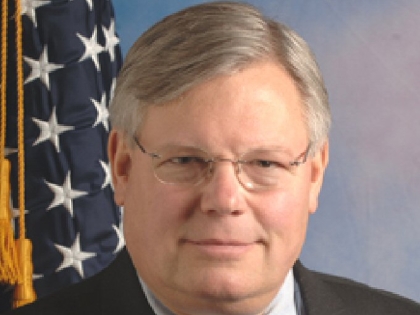
Testimony Of New York State Senator Thomas K. Duane To The New York City Council Committee On Housing And Buildings Regarding Introduction 534 - Fines For Illegal Conversions
My name is Thomas K. Duane and I represent New York State's 29th Senate District, which includes the Upper West Side, Clinton/Hell's Kitchen, Greenwich Village, and part of the East Side, including the East Village, Stuyvesant Town, Peter Cooper Village and Waterside Plaza. Thank you for the opportunity to present testimony before the New York City Council's Committee on Housing and Buildings today regarding Introduction 534, which relates to the fines for illegal conversions from residences to hotels. I applaud Council Members Gale Brewer, Dan Garodnick and Rosie Mendez for this bill and ask the Committee to support this vital piece of legislation.
The problem of apartments within residential buildings being converted into transient hotel units should not be understated. In the past three years, my district has seen an explosion of such conversions. These "illegal hotels" create hazardous conditions for short-term visitors and permanent residents alike, and undercut the legitimate hotel industry that is such an important part of New York City's economy.
Illegal hotels are dangerous to those who stay in them because residential buildings are not bound by the same strict fire and building codes as are legitimate hotels Illegal hotel rooms also tend to fall far below standards in terms of security, room quality and amenities. These conditions not only leave visitors vulnerable to harm, but also damage the city's reputation, and therefore harm tourism and the legitimate hotel industry.
Further, as you will no doubt hear from many tenants, advocates, and legislators today, illegal hotels are bad for New Yorkers. Their proliferation greatly exacerbates our already severe lack of affordable housing by taking literally thousands of residential units off the market. Moreover, tenants living in buildings with illegal hotels suffer from the lack of security and excessive noise that result from transient guests coming and going without regard for their neighbors. Tenants in these buildings also commonly face extreme harassment from landlords who have realized that their apartments would be worth much more as illegal hotel rooms than as homes for permanent tenants.
This widespread, illegal practice needs to be attacked accordingly. Mayor Bloomberg, to his great credit, has increased the staff at the Mayor's Office of Special Enforcement ("OSE"), which has the task of investigating and prosecuting operators of illegal hotels. Regrettably, the punitive measures facing landlords who are found guilty of this crime are pitiable. A prime example of this can be found in the case of 160 Bleecker Street, a notorious illegal hotel in my district. In June of 2006, in response to complaints from tenants with whom my office had been working, an inspector from the New York City Department of Buildings issued the landlord a violation for Use Contrary to the Certificate of Occupancy. In September of this year, the case was finally decided by the New York City Environmental Control Board and the owner of the building was found in violation of the law. Unfortunately, the fine levied was a paltry $800. Considering that these rooms rent out for several hundred dollars a night, and there are at least fifty rooms being used in this fashion, this is a laughable punishment that the landlord could easily write off as a cost of doing business.
Penalties under the law should be sufficient to compel lawful conduct. The current fine structure, under which a building's owner may be assessed a one-time fine of $800 regardless of how many illegal hotel units he or she operates, quite simply fails to do so. Introduction 534 would rectify this, by allowing penalties to be issued for every unit used illegally, with compounding fines for repeat offenses.
It must be noted, however, that increasing the fines for operating illegal hotels, while crucial, should only be the first step. Loopholes in the law make prosecutions of illegal hotels difficult in certain circumstances. In fact, I very recently held a meeting with tenants living at One Bank Street who are facing imminent eviction due to their landlord desire to use their apartments as extended-stay hotel rooms. Extended-stay hotels are illegal hotels in which the owner professes to only rent the rooms for stays longer than thirty days. It is my understanding that the Mayor's office is developing a legislative package that will close loopholes regarding extended-stay hotels and allow for easier prosecution of clearly illegal activity. Such legislation is desperately needed for the tenants at One Bank Street and thousands more across the city, and along with Introduction 534 would enable the City to more effectively fight the scourge of illegal hotel operators.
I thank the City Council's Committee on Housing and Buildings for allowing me to submit this testimony and urge you to pass Introduction 534.